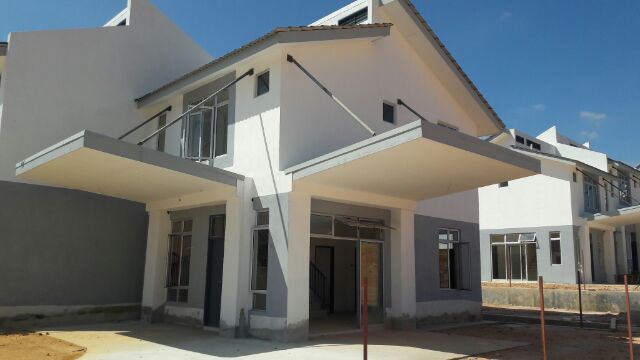By Lee Wei Lian
April 23, 2012
KUALA LUMPUR, April 23 — This year will be a challenging one for residential property as tighter lending bites into demand, especially speculative buying, property consultancy DTZ said today.
DTZ said in a report that Bank Negara’s new lending guidelines will cool an overheated market that has run up substantially in terms of pricing in the last two years as well as focus developments toward the more affordable housing segment.
The new guidelines, which use net income instead of gross income, will likely lead to slower sales for developers, said the report.
DTZ said in a report that Bank Negara’s new lending guidelines will cool an overheated market. — file pic
It noted, however, that developers remained upbeat over the year’s prospects.
“Although 2012 will be a challenging year as tighter lending bites into demand especially speculative buying, nevertheless, developers are confident that the demand for residential properties in Kuala Lumpur will remain selectively strong, as developers focus on smaller and therefore more affordable units as well as packaging launches with attractive Developer Interest-Bearing Scheme (DIBS),” said DTZ.
Bank Negara has introduced new lending guidelines, which came into effect in January, in an attempt to put a lid on household debt, currently at about 77 per cent of GDP.
The guidelines have apparently already had the desired effect on loans.
HwangDBS Vickers said in a report last week that mortgage approvals and applications in February were respectively 27 and 18 per cent lower than last year’s peak partly due to the stricter lending guidelines.
It also said the loan approval rate has fallen to 45 per cent from 55 per cent in August last year, while margin of financing has been reduced to 70-80 per cent from 90-95 per cent in the heyday of the property boom.
The residential property market has also been moderating across the causeway with Singapore reporting a sharp drop in transactions following government cooling measures such as a higher stamp duty.
Purchases by Singaporeans slumped 12 per cent in the first quarter, while permanent residents bought 7.5 per cent less and transactions by foreigners dived 78 per cent.
Singapore home prices also suffered their first drop in nearly three years when it fell 0.1 per cent quarter-on-quarter in March.
In terms of Malaysia’s office sector, DTZ said that it is likely to see greater challenges with slower economic growth and an anticipated oversupply in the coming months, as the pressure to find tenants gathers intensity.
It noted, however, that the office rental market was stable with an occupancy rate of 86 per cent.
Rent in prime office space exhibited resilience and stood at RM6.25 per sq ft per month which was unchanged from the last quarter despite weakening market conditions.
DTZ said that while the proposed KL International Financial District was an exciting development, it could heighten concerns of a property glut.
“Whilst it will be exciting for the market to see the emergence of a rival office district to KLCC, it will ratchet up the competitive pressure on rents by several notches at a time when oversupply is a major concern,” said the report.
DTZ said that the retail sector is likely to continue growing moderately supported by relatively cautious consumer spending and tourist arrivals.
It also said that new major retail centres would continue to attract retailers who are selective and would still lease space in centres that are expected to see high footfall.

No comments:
Post a Comment